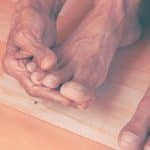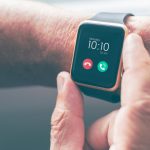Questions To Ask A Caregiver
Having a good caregiver who fulfills the job needs is a true blessing. A caregiver’s role is not just bathing and grooming but instead being a support system for the person needing assistance. To hire the best caregiver, one must look for technical and medical abilities, organization skills, and observation skills in the applicants. However, having a broad list of interview questions for caregivers might help you prioritize your requirements and expectations.
Here, we have listed down some sample questions to ask a caregiver to help you evaluate their abilities while hiring.
The 20 Most Common Caregiver Interview Questions
Have a sneak peek into the most commonly requested caregiver interview questions and answers before scheduling the interview.
Can you tell me about your experience as a caregiver?
When you ask your caregiver questions related to their experience, always look for their overall demeanor and enthusiasm towards their job. It shouldn’t be like they are working for mere money. Instead, their experience should demonstrate a deep understanding and concern for the well-being of their care recipients.
What inspired you to pursue a career in caregiving?
Why do you want to be a caregiver? It is a broader spectrum question that tells what excites them about their job. You should look for why they have a passion for helping others if they are passionate enough about their job. When you ask this question, make sure the answer reflects empathy and how well-connected the caregiver is with the past patients.
Do you have any formal training or certifications related to caregiving?
This is one of the most important home health aide interview questions, reflecting the qualifications and eligibility for the role of home health aide. Check if the caregiver holds any certifications from reputable organizations. These certifications mean that the caregiver has gone through the training and assessment essential for caregiving principles and practices within the recipient’s home.
How do you handle situations when a care recipient’s needs change suddenly or unexpectedly?
When you ask the caregiver about how they will respond when there is a sudden change in the needs of their patient, you look for adaptability and flexibility in their answer. Ask for their approach to quickly adapt their care plans and routines to accommodate changes in their care recipients’ conditions or needs.
Can you describe a challenging caregiving situation you’ve encountered and how you handled it?
Caregivers should be able to maintain their composure even in challenging and stressful situations. This is what you need to look for while asking this question. They should be able to think clearly and make informed decisions when faced with difficult circumstances.
How do you build trust and rapport with care recipients?
Among other questions for assisted living interviews, you must know how your potential caregiver takes the process of trust and rapport building. The answer must express a genuine interest in getting to know their care recipients as individuals. They should be curious about their life experiences, preferences, and values, treating them as an equal human.

What are some other questions to ask caregivers for elderly and special people?
- What tasks and responsibilities have you performed in previous caregiving roles? Look for their expertise with the elderly and those who need special care.
- Are you comfortable assisting with activities of daily living (ADLs), such as bathing, dressing, and toileting? How do they make the care recipient comfortable?
- How do you prioritize the safety and well-being of care recipients in their home environment? What measures do they take? What equipment do they need?
- Do you have experience working with individuals with specific medical conditions or special needs? Discuss the specific medical condition you want help with and see if they have experience in caring for such recipients.
- How do you adapt your caregiving approach to accommodate the preferences and routines of each care recipient? Look for how quickly they adapt. Give them a situation and evaluate their answer.
- Can you explain your understanding of confidentiality and privacy in a caregiving context? See if they understand the concept of ethical caregiving. In fact, when you discuss their past experience, observe if they are sharing anything inappropriate about their past care recipients.
- How do you handle situations where a care recipient may be resistant to receiving care or assistance? Here, the best in communication and patience wins.
- Are you familiar with any assistive devices or technologies that can aid in caregiving tasks? Such interview questions for caregivers let you know how adept they are with the latest medical technologies.
- How do you stay updated on best practices and advancements in caregiving techniques? Look for answers that show their commitment to continuous learning and professional development.
- Can you provide an example of how you effectively communicated with a care recipient’s family or healthcare team? When you compile questions to ask caregivers for the elderly, keep this one on the top. This shows their ability to articulate information clearly, using language that is understandable to both family members and healthcare professionals.
- How do you manage your time and prioritize tasks when caring for multiple individuals? Here, you look for planning and organizational skills.
- Have you ever had to administer medication or perform any medical procedures under supervision? Look for the approach and if they have taken the formal training.
- How do you ensure that the emotional and social needs of care recipients are met in addition to their physical needs? As we said earlier, it is not just about bathing and grooming. It is also about emotional and social needs. Ask for their approach to building a connection with the recipients.
- Can you share any personal experiences or qualities that you believe make you a strong caregiver? In their answer, look for a passion to help others.
Final Thoughts
Caregiving is not just about assisting in day-to-day life; in fact, it is about spending a portion of your time providing care and comfort to the person in need. It takes empathy, connection, and your medical abilities to be a good caregiver. On the other hand, asking the right caregiver interview questions might help the employer lay down their expectations in front of the employee before hiring.

Having proper toenail care is necessary for seniors because it contributes not only to their overall foot health but also to safety. The significance of toenail care for elderly individuals necessitates regular trimming. With age, their toenails have unique challenges—they thicken and become more brittle, complicating the maintenance process. Addressing these challenges becomes crucial for maintaining foot care. Emphasizing cutting toenails for the elderly, we address every question available for toenail care services offered. We also explain the role of podiatrists while answering the common query: do podiatrists cut toenails? Let’s prioritize the foot health of our senior community. Why Proper Toenail Care Matters for Seniors? Have you found someone searching for a "podiatrist to cut toenails near me?" It's because they know how difficult it gets for the elderly to do it themselves, and they need to hire someone to do it for them. Finding someone who specializes in elderly toenail care can make a significant difference. Proper toenail care goes beyond aesthetics—it plays a vital role in preventing common foot problems in the elderly, including fungal infections, ingrown toenails, Paronychia, and Nail dystrophy. Moreover, prioritizing toenail care contributes to promoting mobility and comfort among seniors. Untreated toenail issues can cause painful conditions, hindering everyday activities like walking or standing. Sufficient attention and appropriate care interventions enhance both foot health and overall well-being. Such that problems like thickened nails and onychomycosis look nothing. Can Podiatrists Help with Toenail Cutting for Seniors? Seniors, especially those with diabetes, need to avoid self-trimming toenails to reduce the risk of infections. Podiatrists cut toenails and play a crucial role by offering specialized care to maintain the health of elderly feet and enhance comfort while relieving pain. Not limited to diagnosis and treatment, podiatrists are equipped to provide essential services like toenail cutting and maintenance for seniors near me. They provide a special pedicure for seniors and utilize medical-grade nail trimmers, soak the toenails until soft, sanitize the nail cutter, and then trim the nails. This makes the process easier and reduces the risk of complications. Exploring Mobile Pedicure Services for Seniors Searching for "mobile pedicure for seniors near me" can lead you to your expert assistance and care tailored to the specific needs of elderly foot care. Once potential options are identified, go into the services offered. This involves exploring the range of care, from toenail trimming to foot massages and ensuring the use of safe and hygienic tools. Receiving personalized pedicure services in the comfort of one's home not only enhances relaxation but also holds potential health benefits. Improved circulation and a reduced risk of foot issues contribute to overall well-being. Evaluating how the mobile service caters to the unique needs of seniors becomes paramount in this context. Search for the following questions: Where to Find Elderly Nail Care Services Near Me? When searching for elderly nail care services near me, several factors can help you find a reliable solution. Local senior care facilities and communities often host specialized services, including toenail care. Seeking recommendations from healthcare providers and caregivers is another option, as they know reputable professionals or services specializing in elderly foot care. What to Consider When Choosing Toenail Care Services for Seniors? When searching for a pedicure for seniors near me, a key consideration is getting a tailored and reliable experience. Firstly, you should verify the licensing and certification of care providers so that you know they are eligible to treat the elderly. Look for hygiene and sanitation practices so that they use clean and sterile tools. Finally, choose services that are customized to individual needs and preferences, recognizing the unique requirements of each senior. The Benefits of Pedicure for Seniors Pedicures for seniors offer a bunch of benefits, starting with the improvement of circulation and joint mobility. It fixes issues like ingrown toenails and calluses and also contributes to foot health by alleviating discomfort. The overall outcome includes improved comfort and well-being for seniors, making regular pedicures a norm of comprehensive foot care. Ensuring Comfort and Safety During Toenail Care for Seniors It involves thoughtful practices, including proper positioning and support to accommodate the unique needs of our seniors. The professional must have the right tools and techniques for toenail cutting for a safe and effective procedure. At the same time, the practitioners should keenly recognize signs of discomfort or pain throughout the process, adapting the care approach accordingly. Cost Considerations for Elderly Toenail Care Services When considering the cost of toenail care services for the elderly, always understand various pricing models so that you have clarity on fees and potential additional costs. For seniors on a fixed income, seeking budget-friendly alternatives becomes helpful. It allows them to access essential toenail care without compromising financial stability. By navigating these considerations, individuals can make informed choices that align with both their foot health needs and budget constraints. Final Thoughts Looking for your "elderly nail care services near me" look for accessibility and quality. They must provide a proactive approach to foot health. On your part, you can spread awareness and action within the elderly community so that their toenails are treated well.

In an era where technology is seamlessly integrated into daily life, Apple Watches have emerged as a significant tool for seniors, offering a range of features tailored to their needs. From emergency alert systems to health monitoring, Smart Watches provide a blend of safety and convenience for the elderly. Emergency Alert System on iPhone and Apple Watch One of the standout features of Apple Watches is the emergency alert system. It allows seniors to quickly contact emergency services if they find themselves in a precarious situation. This feature is easily accessible both on the iPhone and the Apple Watch, ensuring help is just a tap away. Apple's Commitment to Senior Care Apple demonstrates its commitment to the elderly through continuous enhancements in its devices. The Apple Watch and iPhone come equipped with features designed to cater to the unique needs of seniors, making these devices not just tools of convenience but also of care. Smartwatch Fall Detection: A Lifesaver Fall detection is a critical feature for seniors. The Apple Watch smartly incorporates this, automatically detecting a hard fall and sending an alert to emergency contacts if the user is unresponsive after a certain period. This can be lifesaving, especially for seniors living alone. Apple Watch: A Medical Alert System The Apple Watch doubles as a medical alert system. It can notify emergency services and predefined contacts in case of a medical emergency. With features like heart rate monitoring and the ability to detect irregular rhythms, it offers peace of mind to both the user and their loved ones. Health Monitoring for Seniors Health monitoring is another area where the Apple Watch excels. It tracks various health metrics, which are particularly beneficial for seniors. It includes monitoring heart rate, activity levels, and even blood oxygen levels, helping to keep a close eye on crucial health indicators. Best Apple Watch Models for Seniors When considering the best Apple Watch for seniors, models with larger screens and simpler interfaces are often recommended. The ease of use is a key factor, along with the availability of health and safety features. How to Use Apple Watch in Emergencies The ability to call 911 directly from an Apple Watch is a vital feature. It ensures that in any emergency, help can be summoned quickly and efficiently, a function that's particularly useful for seniors who might find themselves in situations where they can't reach their phone. Pros and Cons of Apple Watch for Seniors While the Apple Watch offers numerous benefits for seniors, including health tracking and emergency features, there are considerations to keep in mind. The cost can be a factor, and some seniors may find the technology challenging to navigate. However, the safety features and health benefits often outweigh these concerns. Conclusion Apple Watches have proven to be more than just a technological innovation; they are a tool of empowerment for seniors. With features like fall detection, emergency alerts, and health monitoring, they offer a blend of safety, health management, and peace of mind for both the elderly and their caregivers. As technology continues to evolve, the potential for these devices to enhance the lives of seniors is immense. If you or member of your family needs a home care - Angel Care, Inc., New York home care agency here to help, rich us now by phone at 917-507-7500 or by e-mail at [email protected].



